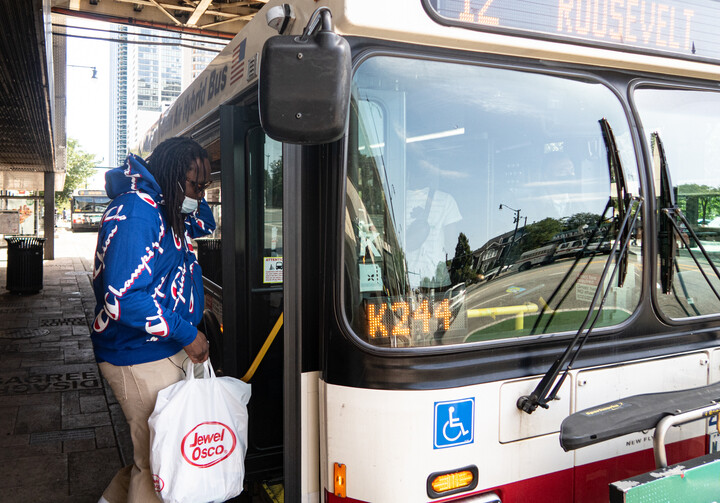Did You Know?
Why Congress must deliver ongoing operations support for Chicago-area transit

All residents of the Chicago region deserve access to reliable, affordable public transportation, no matter where they live.
Imagine a region where every community has great bus and train service that can safely and conveniently get you to work, school, shopping, church, or anywhere else you need to go; a place where you don’t need to spend thousands of dollars per year owning and operating a car.
Putting every resident within reach of frequent transit service is possible — we just need to fund it.
PROBLEM
Today, the only federal funding provided for transit in large metro areas like Chicago is for maintenance or expansion projects — not the day-to-day costs of running buses and trains. Operating expenses represent two-thirds of total public transportation costs. CTA, Metra, and Pace are on their own to raise this money, relying on a combination of fares and sales tax revenues.
As the pandemic demonstrated, these state and local sources for operating funds are unreliable. Relying on them forces agencies to chase ridership and revenue, rather than focus on delivering bus and train service where it’s needed the most.
The lack of operating support for transit doesn’t impact all metro Chicago residents equally. Black and Brown people are more likely to lack access to a vehicle and rely on transit to get to work, go to the local grocery store or healthcare center, and visit friends and family. When agencies increase fares and cut service in response to declining revenue, Black and Brown residents suffer the most harm.
This underfunding of public transit is not environmentally sustainable. Most people who can afford it choose to drive because it’s a faster and more reliable way to get where they need to go. This has a devastating impact on traffic safety and air quality in communities across the Chicago region, with Black and Brown residents again suffering disproportionately.
SOLUTION
The three COVID relief packages broke from this approach by providing operating support for transit in recognition of the critical role buses and trains play in connecting people to jobs, food, healthcare, and family.
This harkened back to the 1970s and 1980s, when the federal government matched as much as $1 of operating assistance for every $2.25 provided by state and local governments. Now is the time to return to this more equitable and sustainable approach to funding public transportation.
To do this, we are calling upon Congress to include $20 billion per year in operating support for transit agencies in the upcoming reauthorization of the federal transportation bill. Active Transportation Alliance and the Center for Neighborhood Technology are leading a campaign to get our Chicagoland congressional delegation on board. Now we need your help.
___________________________________________________
Ask your members of Congress to support ongoing federal operating assistance for public transit
____________________________________________________
What could federal operating support mean for Chicago-area transit?
- Lower fares, particularly for longer distance trips to growing suburban job centers
- More frequent service, especially on nights and weekends when service tapers off but travel demand is high for essential workers
- More good paying jobs for transit workers who are the backbone of the transit system
Make a Donation
Your tax-deductible donation supports the important work that Active Trans does throughout the region

